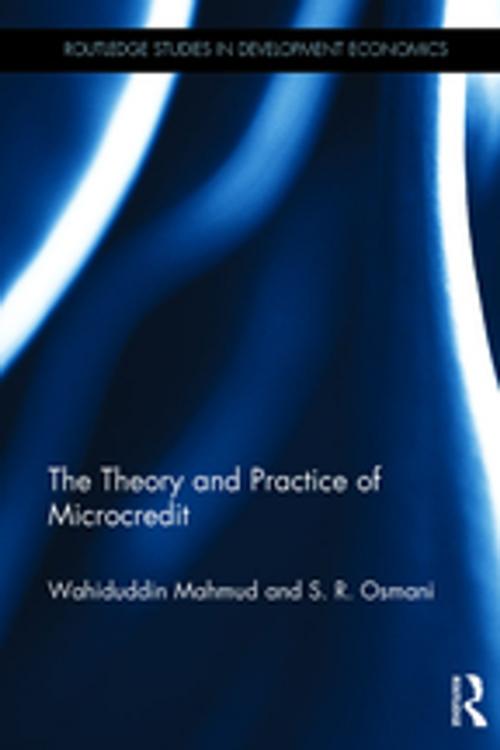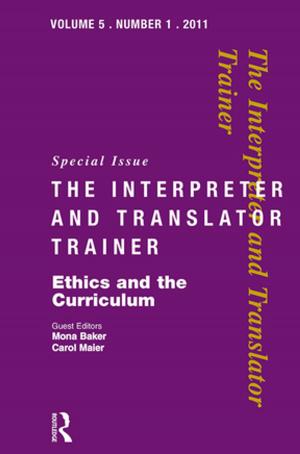The Theory and Practice of Microcredit
Business & Finance, Economics, Microeconomics, Economic Development| Author: | Wahiduddin Mahmud, S. R. Osmani | ISBN: | 9781315413150 |
| Publisher: | Taylor and Francis | Publication: | October 4, 2016 |
| Imprint: | Routledge | Language: | English |
| Author: | Wahiduddin Mahmud, S. R. Osmani |
| ISBN: | 9781315413150 |
| Publisher: | Taylor and Francis |
| Publication: | October 4, 2016 |
| Imprint: | Routledge |
| Language: | English |
The remarkable speed at which microcredit has expanded around the world in the last three decades has piqued the curiosity of practitioners and theorists alike. By developing innovative ways of making credit available to the poor, the idea of microcredit has challenged many traditional assumptions about both poverty reduction strategies and financial markets. While this has encouraged new theorising about how microcredit works, the practice of microcredit has itself evolved, often in unpredictable ways, outpacing the development of theory.
The Theory and Practice of Microcredit aims to remedy this imbalance, arguing that a proper understanding of the evolution of practice is essential both for developing theories that are relevant for the real world and for adopting policies that can better realize the full potential of microcredit. By drawing upon their first-hand knowledge of the nature of this evolution in Bangladesh, the birthplace of microcredit, the authors have pushed the frontiers of current knowledge through a rich blend of theoretical and empirical analysis. The book breaks new grounds on a wide range of topics including: the habit-forming nature of credit repayment; the institutional strength and community-based role of microfinance institutions; the relationships between microcredit and informal credit markets; the pattern of long-term participation in microcredit programmes and the variety of loan use; the scaling up of microenterprises beyond subsistence; the "missing middle" in the credit market; and the prospects of linking micro-entrepreneurship with economic development.
The book will be of interest to researchers, development practitioners and university students of Development Economics, Rural Development, or Rural Finance, as well as to public intellectuals.
The remarkable speed at which microcredit has expanded around the world in the last three decades has piqued the curiosity of practitioners and theorists alike. By developing innovative ways of making credit available to the poor, the idea of microcredit has challenged many traditional assumptions about both poverty reduction strategies and financial markets. While this has encouraged new theorising about how microcredit works, the practice of microcredit has itself evolved, often in unpredictable ways, outpacing the development of theory.
The Theory and Practice of Microcredit aims to remedy this imbalance, arguing that a proper understanding of the evolution of practice is essential both for developing theories that are relevant for the real world and for adopting policies that can better realize the full potential of microcredit. By drawing upon their first-hand knowledge of the nature of this evolution in Bangladesh, the birthplace of microcredit, the authors have pushed the frontiers of current knowledge through a rich blend of theoretical and empirical analysis. The book breaks new grounds on a wide range of topics including: the habit-forming nature of credit repayment; the institutional strength and community-based role of microfinance institutions; the relationships between microcredit and informal credit markets; the pattern of long-term participation in microcredit programmes and the variety of loan use; the scaling up of microenterprises beyond subsistence; the "missing middle" in the credit market; and the prospects of linking micro-entrepreneurship with economic development.
The book will be of interest to researchers, development practitioners and university students of Development Economics, Rural Development, or Rural Finance, as well as to public intellectuals.















